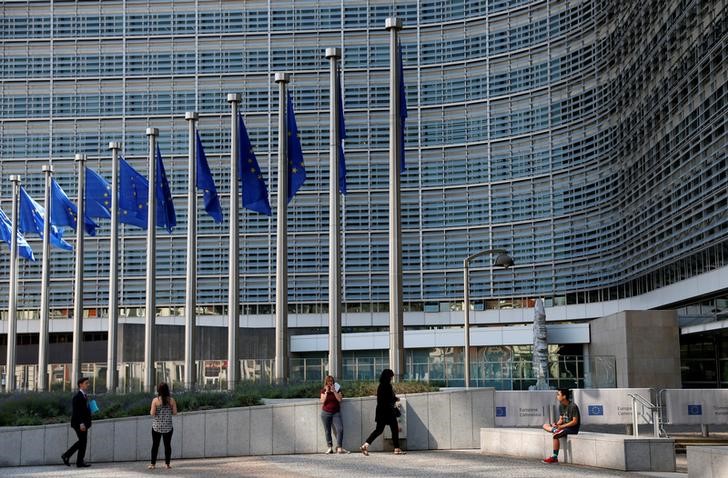BRUSSELS (Reuters) - Euro zone economic sentiment edged lower in July, pulled down by less optimism in industry and the retail sectors, despite a better mood in services, a monthly survey by the European Commission showed on Monday.
The Commission survey showed the economic sentiment indictor for the 19 countries sharing the euro currency eased to 112.1 points in July form 112.3 in June, continuing a downward trend started since a peak of 115.2 last December.
Separately, the Commission's business climate indictor, which helps identify the phase of the business cycle, fell to 1.29 in July from 1.38 in June, following a similar downward path as economic sentiment since a peak of 1.63 in January.
The easing of sentiment in July was mainly due to a fall in the indicator for industry which decreased to 5.8 from 6.9, because managers were more pessimistic on production expectations, the current level of overall order books and stocks of finished products.
The survey suggested trade tensions between the European Union and the United States, that resulted in the U.S. imposing tariffs on European steel and aluminum exports in June as well as the threat of more tariffs on EU cars, had an effect.
"Managers' assessment of past production improved while their views on export order books worsened," the survey said.
Sentiment in services, which generate more than two thirds of euro zone gross domestic product, improved to 15.3 from 14.4 in June, while consumer sentiment held stable at -0.6 points -- still high above the long-term average of -12.2.
The mood in the retail sector fell sharply to -0.1 from 0.7 as managers worried over the expected business situation and the adequacy of the volume of stocks.

Consumer inflation expectations over the next 12 months rose to 18.0, close to the long-term average of 18.6. Selling price expectations in industry fell to 9.7 in July from 10.1 in June.